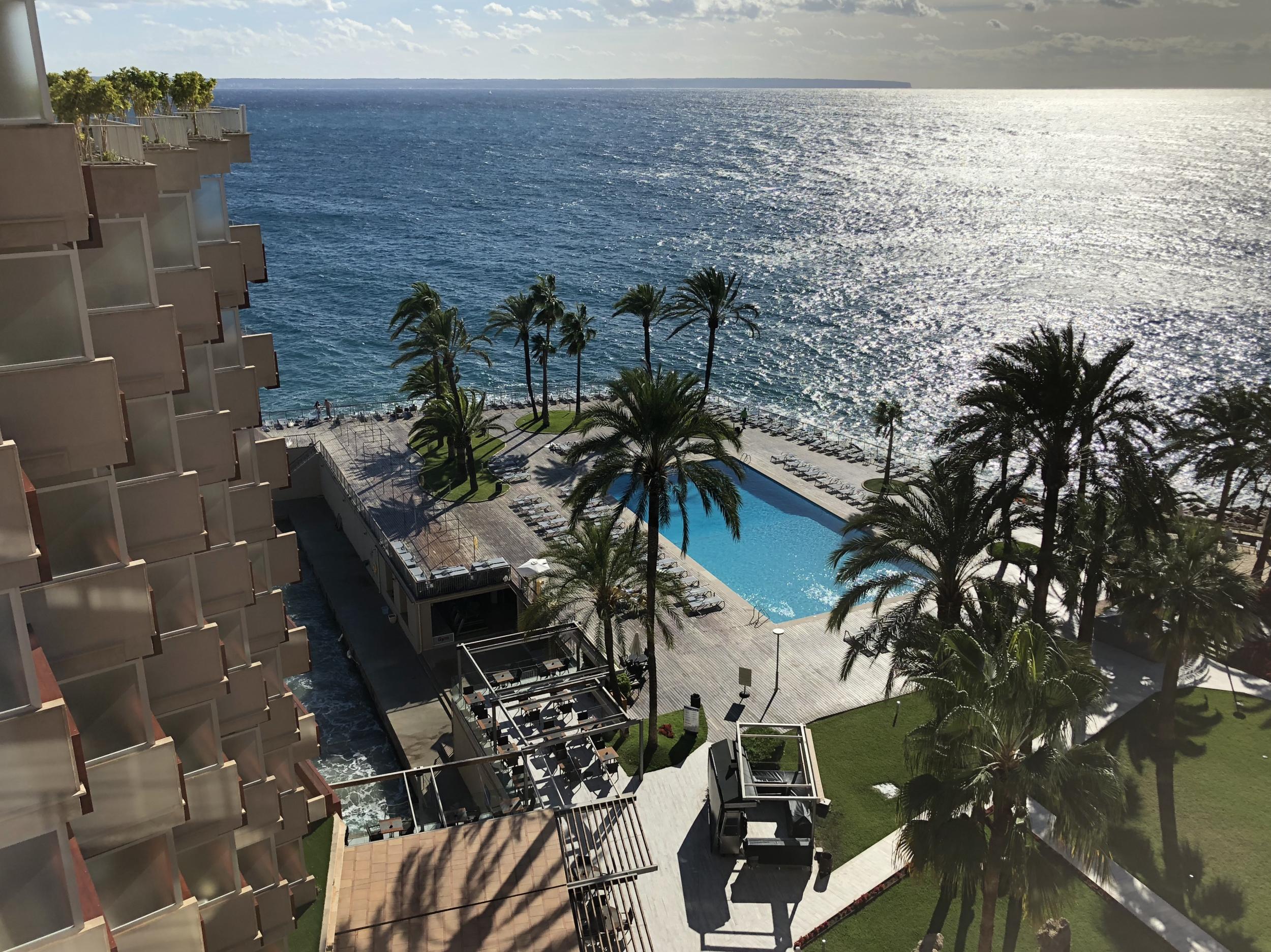How airlines are cashing in on end-of-season demand
The Man Who Pays His Way: ‘We’ve already sold all the seats on flight 8630, but we’re betting that they won’t all turn up’

Your support helps us to tell the story
From reproductive rights to climate change to Big Tech, The Independent is on the ground when the story is developing. Whether it's investigating the financials of Elon Musk's pro-Trump PAC or producing our latest documentary, 'The A Word', which shines a light on the American women fighting for reproductive rights, we know how important it is to parse out the facts from the messaging.
At such a critical moment in US history, we need reporters on the ground. Your donation allows us to keep sending journalists to speak to both sides of the story.
The Independent is trusted by Americans across the entire political spectrum. And unlike many other quality news outlets, we choose not to lock Americans out of our reporting and analysis with paywalls. We believe quality journalism should be available to everyone, paid for by those who can afford it.
Your support makes all the difference.“Two weeks for being drunk and disorderly” – that was one of the slogans for the now defunct Club 18-30. The hedonists’ haven was killed off this week by Thomas Cook (the travel firm, not the Victorian temperance campaigner who founded it).
The Club’s final curtain came down in Magaluf on Tuesday, when the last banana boat sailed and the party stragglers flew back to Manchester. I had rather less than two weeks in the Mallorcan resort, flying from Gatwick, to see what had become of the den of drunken debauchery (Magaluf, not Gatwick).
I was intrigued to find how quickly the place had been recolonised by cheerful older couples and families with younger children. But equally fascinating was my end-of-the-season flight home.
With the summer parties in the Balearics well and truly over, the final departures to the UK are always rammed. Which gave me some cause for concern. Finding a bargain £28 seat on the plane out to Palma had been a piece of ensaimada (cake), but the cheapest deal for a flight back to Gatwick was showing at £180 on Norwegian.
There’s always space for one, I have found over the years, so I was sure I would find a suitable seat home. So I headed for Palma airport. At the traditional Mediterranean airports, you can still do the old analogue thing and ask at the tour operators’ desks.
“I can get you to Newcastle for £119,” the helpful lady at the Tui bureau offered. A quick calculation showed that even if I arrived in Tyneside in time for the last train south, the fare to London would take the trip over £200.
To my dismay, when I checked the £180 seat on Norwegian, it had almost doubled to £350. As the rain poured down outside the terminal, the sharp price rise indicated that there were an indeterminate number of other strays desperate to flee the island.
A seller’s market, I concluded, and checked easyJet. One seat remained on the last flight of the night, price €262 (£230).
Yes, I thought it was a lot for a two-hour flight – eight times more than I had paid for a flight in the opposite direction. No, I can’t fault the airlines for charging whatever the market will bear. No one forced me to click “Pay”.
But what happened next surprised me.
I immediately tried to check in online, as the airline suggested. “Online check-in nnavailable,” the response read. “Please go to the bag drop desks at the airport.”
Fortunately that involved a journey of less than a minute. Unfortunately, when I reached the head of the queue it turned out there was no way I could check in: the flight was overbooked.
“Come back in an hour,” I was told. “We’ll try and find you a seat.”
When easyJet’s website urged “Only one seat left”, what it meant was: “We’ve already sold all the seats on flight 8630, but we’re betting that they won’t all turn up; if we’re right, your £230 will be our handsome reward.”
An hour later, we both won: I was handed a boarding pass. I later found out from easyJet that the odds of an overbooked passenger actually being denied boarding are 33-1.
I don’t blame the airline from wanting to cash in on the surge in demand at the end of the season. Indeed, the event demonstrated two of the benefits of overbooking: providing the chance for someone to travel by selling a seat that doesn’t actually exist, and minimising the per-passenger environmental impact of a flight by filling it to the brim.
But eager last-minute buyers deserve to know easyJet’s high-stakes game, which I sum up as: “We will happily sell you a high-priced, last-minute ticket, but there’s no guarantee you’ll get on board.”
Join our commenting forum
Join thought-provoking conversations, follow other Independent readers and see their replies
Comments